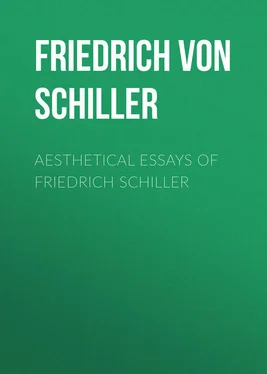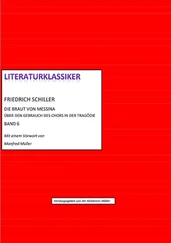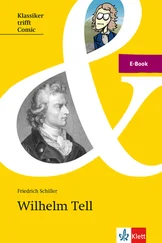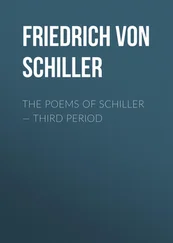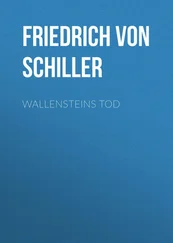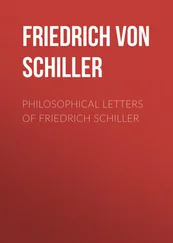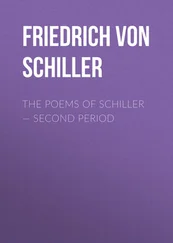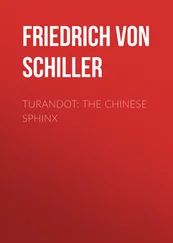Friedrich Schiller - Aesthetical Essays of Friedrich Schiller
Здесь есть возможность читать онлайн «Friedrich Schiller - Aesthetical Essays of Friedrich Schiller» — ознакомительный отрывок электронной книги совершенно бесплатно, а после прочтения отрывка купить полную версию. В некоторых случаях можно слушать аудио, скачать через торрент в формате fb2 и присутствует краткое содержание. Жанр: literature_18, foreign_antique, foreign_prose, на английском языке. Описание произведения, (предисловие) а так же отзывы посетителей доступны на портале библиотеки ЛибКат.
- Название:Aesthetical Essays of Friedrich Schiller
- Автор:
- Жанр:
- Год:неизвестен
- ISBN:нет данных
- Рейтинг книги:3 / 5. Голосов: 1
-
Избранное:Добавить в избранное
- Отзывы:
-
Ваша оценка:
- 60
- 1
- 2
- 3
- 4
- 5
Aesthetical Essays of Friedrich Schiller: краткое содержание, описание и аннотация
Предлагаем к чтению аннотацию, описание, краткое содержание или предисловие (зависит от того, что написал сам автор книги «Aesthetical Essays of Friedrich Schiller»). Если вы не нашли необходимую информацию о книге — напишите в комментариях, мы постараемся отыскать её.
Aesthetical Essays of Friedrich Schiller — читать онлайн ознакомительный отрывок
Ниже представлен текст книги, разбитый по страницам. Система сохранения места последней прочитанной страницы, позволяет с удобством читать онлайн бесплатно книгу «Aesthetical Essays of Friedrich Schiller», без необходимости каждый раз заново искать на чём Вы остановились. Поставьте закладку, и сможете в любой момент перейти на страницу, на которой закончили чтение.
Интервал:
Закладка:
But as soon as these two faculties have passed into action, and man has verified by his experience, through the medium of sensation, a determinate existence, and through the medium of consciousness its absolute existence, the two fundamental impulses exert their influence directly their object is given. The sensuous impulse is awakened with the experience of life – with the beginning of the individual; the rational impulsion with the experience of law – with the beginning of his personality; and it is only when these two inclinations have come into existence that the human type is realized. Up to that time, everything takes place in man according to the law of necessity; but now the hand of nature lets him go, and it is for him to keep upright humanity, which nature places as a germ in his heart. And thus we see that directly the two opposite and fundamental impulses exercise their influence in him, both lose their constraint, and the autonomy of two necessities gives birth to freedom.
LETTER XX
That freedom is an active and not a passive principle results from its very conception; but that liberty itself should be an effect of nature (taking this word in its widest sense), and not the work of man, and therefore that it can be favored or thwarted by natural means, is the necessary consequence of that which precedes. It begins only when man is complete, and when these two fundamental impulsions have been developed. It will then be wanting whilst he is incomplete, and while one of these impulsions is excluded, and it will be re-established by all that gives back to man his integrity.
Thus it is possible, both with regard to the entire species as to the individual, to remark the moment when man is yet incomplete, and when one of the two exclusions acts solely in him. We know that man commences by life simply, to end by form; that he is more of an individual than a person, and that he starts from the limited or finite to approach the infinite. The sensuous impulsion comes into play therefore before the rational impulsion, because sensation precedes consciousness; and in this priority of sensuous impulsion we find the key of the history of the whole of human liberty.
There is a moment, in fact, when the instinct of life, not yet opposed to the instinct of form, acts as nature and as necessity; when the sensuous is a power because man has not begun; for even in man there can be no other power than his will. But when man shall have attained to the power of thought, reason, on the contrary, will be a power, and moral or logical necessity will take the place of physical necessity. Sensuous power must then be annihilated before the law which must govern it can be established. It is not enough that something shall begin which as yet was not; previously something must end which had begun. Man cannot pass immediately from sensuousness to thought. He must step backwards, for it is only when one determination is suppressed that the contrary determination can take place. Consequently, in order to exchange passive against active liberty, a passive determination against an active, he must be momentarily free from all determination, and must traverse a state of pure determinability. He has then to return in some degree to that state of pure negative indetermination in which he was before his senses were affected by anything. But this state was absolutely empty of all contents, and now the question is to reconcile an equal determination and a determinability equally without limit, with the greatest possible fulness, because from this situation something positive must immediately follow. The determination which man received by sensation must be preserved, because he should not lose the reality; but at the same time, in so far as finite, it should be suppressed, because a determinability without limit would take place. The problem consists then in annihilating the determination of the mode of existence, and yet at the same time in preserving it, which is only possible in one way: in opposing to it another. The two sides of a balance are in equilibrium when empty; they are also in equilibrium when their contents are of equal weight.
Thus, to pass from sensation to thought, the soul traverses a medium position, in which sensibility and reason are at the same time active, and thus they mutually destroy their determinant power, and by their antagonism produce a negation. This medium situation in which the soul is neither physically nor morally constrained, and yet is in both ways active, merits essentially the name of a free situation; and if we call the state of sensuous determination physical, and the state of rational determination logical or moral, that state of real and active determination should be called the aesthetic.
LETTER XXI
I have remarked in the beginning of the foregoing letter that there is a twofold condition of determinableness and a twofold condition of determination. And now I can clear up this proposition.
The mind can be determined – is determinable – only in as far as it is not determined; it is, however, determinable also, in as far as it is not exclusively determined; that is, if it is not confined in its determination. The former is only a want of determination – it is without limits, because it is without reality; but the latter, the aesthetic determinableness, has no limits, because it unites all reality.
The mind is determined, inasmuch as it is only limited; but it is also determined because it limits itself of its own absolute capacity. It is situated in the former position when it feels, in the second when it thinks. Accordingly the aesthetic constitution is in relation to determinableness what thought is in relation to determination. The latter is a negative from internal and infinite completeness, the former a limitation from internal infinite power. Feeling and thought come into contact in one single point, the mind is determined in both conditions, the man becomes something and exists – either as individual or person – by exclusion; in other cases these two faculties stand infinitely apart. Just in the same manner the aesthetic determinableness comes in contact with the mere want of determination in a single point, by both excluding every distinct determined existence, by thus being in all other points nothing and all, and hence by being infinitely different. Therefore if the latter, in the absence of determination from deficiency, is represented as an empty infiniteness, the aesthetic freedom of determination, which forms the proper counterpart to the former, can be considered as a completed infiniteness; a representation which exactly agrees with the teachings of the previous investigations.
Man is therefore nothing in the aesthetic state, if attention is given to the single result, and not to the whole faculty, and if we regard only the absence or want of every special determination. We must therefore do justice to those who pronounce the beautiful, and the disposition in which it places the mind, as entirely indifferent and unprofitable, in relation to knowledge and feeling. They are perfectly right; for it is certain that beauty gives no separate, single result, either for the understanding or for the will; it does not carry out a single intellectual or moral object; it discovers no truth, does not help us to fulfil a single duty, and, in one word, is equally unfit to found the character or to clear the head. Accordingly, the personal worth of a man, or his dignity, as far as this can only depend on himself, remains entirely undetermined by aesthetic culture, and nothing further is attained than that, on the part of nature, it is made profitable for him to make of himself what he will; that the freedom to be what he ought to be is restored perfectly to him.
But by this something infinite is attained. But as soon as we remember that freedom is taken from man by the one-sided compulsion of nature in feeling, and by the exclusive legislation of the reason in thinking, we must consider the capacity restored to him by the aesthetical disposition, as the highest of all gifts, as the gift of humanity. I admit that he possesses this capacity for humanity, before every definite determination in which he may be placed. But, as a matter of fact, he loses it with every determined condition into which he may come; and if he is to pass over to an opposite condition, humanity must be in every case restored to him by the aesthetic life.
Читать дальшеИнтервал:
Закладка:
Похожие книги на «Aesthetical Essays of Friedrich Schiller»
Представляем Вашему вниманию похожие книги на «Aesthetical Essays of Friedrich Schiller» списком для выбора. Мы отобрали схожую по названию и смыслу литературу в надежде предоставить читателям больше вариантов отыскать новые, интересные, ещё непрочитанные произведения.
Обсуждение, отзывы о книге «Aesthetical Essays of Friedrich Schiller» и просто собственные мнения читателей. Оставьте ваши комментарии, напишите, что Вы думаете о произведении, его смысле или главных героях. Укажите что конкретно понравилось, а что нет, и почему Вы так считаете.
